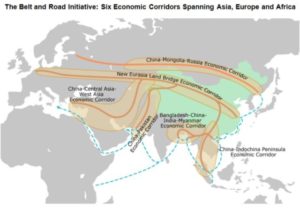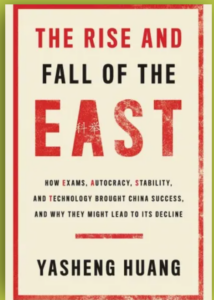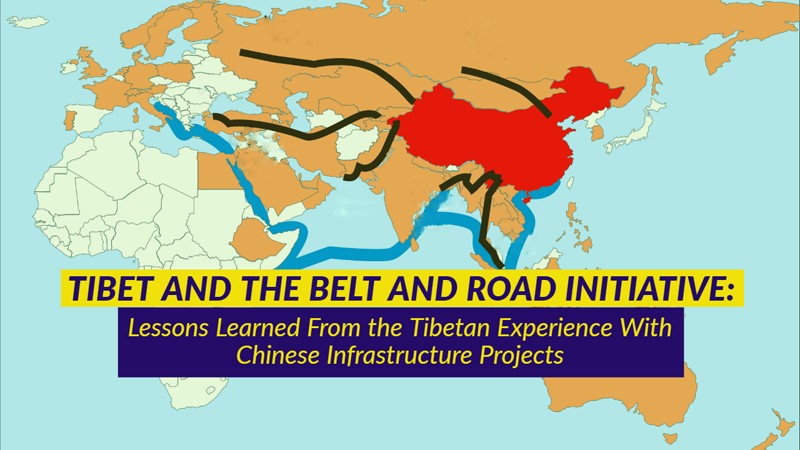Ten years of China’s Belt and Road: what has $1tn achieved? https://t.co/p6cdPxq8Ws via @ft
— Democracy Digest (@demdigest) October 23, 2023
China offers a coherent ideological alternative to the liberal-democratic order, argues New York Times columnist Ross Douthat. The Putin regime is a parody of Western democracy, and Iran’s mixture of theocracy and pseudodemocracy holds little broad appeal. But China’s one-party meritocracy can advertise itself — maybe less effectively since Xi Jinping’s consolidation of power but still with some degree of plausibility — as a successor to democratic capitalism, an alternative model for the developing world.
China’s championing of Xi Jinping’s “three global initiatives” — the Global Development Initiative, the Global Security Initiative and the Global Civilization Initiative – amounts to a blueprint for an alternative world order to challenge the US-led system that has prevailed since the end of the second world war, The Financial Times reports.
 But China’s Belt and Road initiative to finance and build infrastructure in mostly poorer countries has attracted a chorus of criticism, The Financial Times reports. The example of Pakistan — the biggest national recipient of BRI funding — is illustrative of the successes, failures and governance shortcomings that are hampering China’s ambitions to lead the developing world, analysts said:
But China’s Belt and Road initiative to finance and build infrastructure in mostly poorer countries has attracted a chorus of criticism, The Financial Times reports. The example of Pakistan — the biggest national recipient of BRI funding — is illustrative of the successes, failures and governance shortcomings that are hampering China’s ambitions to lead the developing world, analysts said:
New data compiled for the Financial Times by Janes, the defence intelligence company, shows that 40 per cent of the projects in the China-Pakistan Economic Corridor (CPEC) — lionised in July by Xi as “an important flagship” for the entire BRI — have run into troubles including corruption, cost overruns, funding shortfalls or adverse environmental impacts.
Of these troubled projects, at least 20 per cent have been delayed indefinitely or cancelled outright, the Janes data shows. The biggest projects have tended to be the worst hit, with about half of the highway and hydropower schemes encountering difficulties and all of the railway and mining undertakings similarly running into trouble, according to Janes.
 Reformist leaders after the death of Mao Zedong, the founder of the People’s Republic of China, opened up the system enough to allow for innovation, entrepreneurialism, and economic growth, Columbia University’s Andrew Nathan writes for Foreign Affairs. Now, however, Yasheng Huang’s The Rise and Fall of the EAST: How Exams, Autocracy, Stability, and Technology Brought China Success, and Why They Might Lead to Its Decline predicts that the crackdown on freedom under the Chinese leader Xi Jinping’s modernized version of imperial rule may bring an end to the country’s brief spurt of dynamism.
Reformist leaders after the death of Mao Zedong, the founder of the People’s Republic of China, opened up the system enough to allow for innovation, entrepreneurialism, and economic growth, Columbia University’s Andrew Nathan writes for Foreign Affairs. Now, however, Yasheng Huang’s The Rise and Fall of the EAST: How Exams, Autocracy, Stability, and Technology Brought China Success, and Why They Might Lead to Its Decline predicts that the crackdown on freedom under the Chinese leader Xi Jinping’s modernized version of imperial rule may bring an end to the country’s brief spurt of dynamism.
At a recent Americas Society forum, Julio Guzman, a former Fellow at the National Endowment for Democracy, suggested Western countries compete with China for hearts and minds to improve how Latin America views the United States and other democracies.
Beijing has tweaked the BRI to be far less reliant on expensive, big-ticket infrastructure projects, and the CCP has shown no sign of giving up on its hegemonic ambitions, according to the International Republican Institute’s Daniel Twining and Matt Schrader. What’s more, the promised decoupling of China from Western economies — even where sensitive dual-use technologies are concerned — has barely kicked into gear, they write for National Review.








